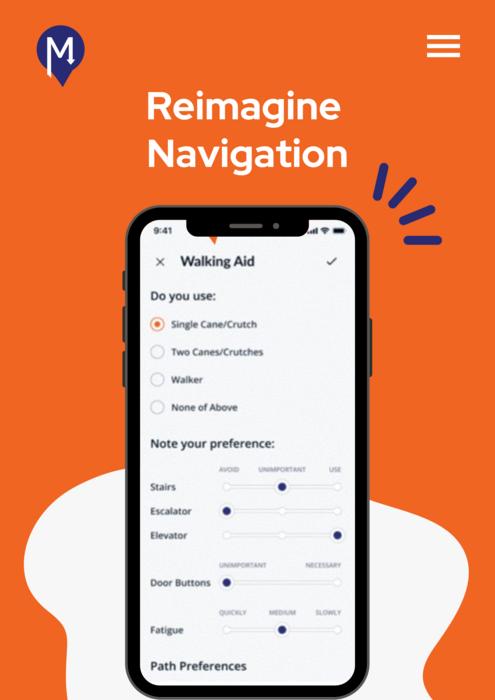Vinod Namboodiri, joint faculty member of Lehigh University’s College of Health and P.C. Rossin College of Engineering and Applied Science, has been awarded Phase 2 funding from the National Science Foundation’s (NSF) Convergence Accelerator to further develop a digital app to help persons with disabilities navigate indoor environments successfully.

Credit: Lehigh University
Vinod Namboodiri, joint faculty member of Lehigh University’s College of Health and P.C. Rossin College of Engineering and Applied Science, has been awarded Phase 2 funding from the National Science Foundation’s (NSF) Convergence Accelerator to further develop a digital app to help persons with disabilities navigate indoor environments successfully.
MABLE: Mapping for Accessibility in BuiLt Environments provides persons with disabilities independence to experience large events, conferences and educational programs. Using crowdsensing, AI and robotics, MABLE empowers individuals with responsive maps and turn-by-turn instructions through a digital app to help them navigate indoor environments successfully.
Key users include those with visual or mobility impairments, such as people with low vision and wheelchair users, as well as other persons with planning and navigation assistance needs.
“The premise of the challenge that I’ve been trying to solve is ‘How do you make it easier for everyone?’” said Namboodiri. “Not necessarily those who know the building well, but anyone in unfamiliar environments. Even those without disabilities often struggle.”
Namboodiri’s team was one of the 16 teams that participated in Phase 1 of the NSF’s Convergence Accelerator, Track H: Enhancing Opportunities for Persons with Disabilities. At the end of Phase 1, the teams participated in a formal pitch and proposal evaluation. In December 2023, the NSF selected MABLE and five other projects to move forward in Phase 2, investing $30 million across all projects with up to $5 million in funding for each project.
In Phase 2, Namboodiri and his team will continue to apply Convergence Accelerator fundamentals to develop solution prototypes and to build a sustainability model to continue impact beyond NSF support. By the end of the 24-month Phase 2 effort, teams are expected to provide high-impact solutions that address societal needs at scale.
Namboodiri’s project and Convergence Accelerator funding connect directly with the College of Health’s core focus on advancing health equity. Specifically, the College of Health recently started a research cluster focused on disability health equity—with Namboodiri at its head— coinciding in focus with the Convergence Accelerator’s Track H.
Additionally, the College of Health takes a comprehensive and multidisciplinary approach to health research, and emphasizes the importance of Community Based Participatory Research (CBPR) and community involvement in the pursuit of health equity. Similarly, Convergence Accelerator research topics begin through gathering input from the community, meet a societal need at scale, and are built upon foundational research and are suitable for a multidisciplinary, convergence research approach.
“A convergence approach between researchers, innovators, and persons with disabilities spanning organizations and communities across multiple sectors is crucial to ensure these NSF-funded solutions address barriers to employment, freedom of movement and quality of life for persons with disabilities,” said Douglas Maughan, head of the NSF Convergence Accelerator program. “The selected Phase 2 teams are fostering strong partnerships to ensure their use-inspired solutions assist a wide range of people.”
The NSF’s Convergence Accelerator transitions basic research and discovery into practice through innovation processes like human-centered design, user discovery and team science, as well as integration of multidisciplinary research and partnerships. By making timely investments, such as Namboodiri’s project, the Convergence Accelerator aims to solve high-risk societal challenges through use-inspired convergence research.
Read the NSF’s press release for more information.




